MercoPress. South Atlantic News Agency
Tag: Mauricio Macri
-
Friday, September 21st 2018 - 09:32 UTC
Argentine Peso recovers strongly and with no support from the Central bank
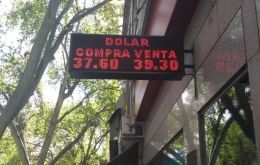
The Argentine Peso reacted strongly against the US dollar on Thursday following on an abundant private supply of greenbacks to satisfy demand, which kept the Central Bank out of the market for the first time since the beginning of the month. The dollar fell 2.8% and ended trading below 39 Pesos.
-
Friday, September 21st 2018 - 08:47 UTC
Argentine Peso at an equilibrium point, says head of Central bank
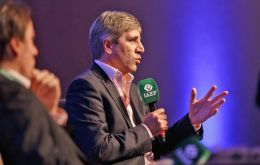
Argentina’s central bank now sees the Peso at an equilibrium level, chief Luis Caputo told market participants who attended a meeting with him on Thursday. The statement comes after two days of strengthening by the peso following a rout that sent it to a record intra-day low in late August.
-
Friday, September 21st 2018 - 08:24 UTC
Argentine stock market booming with new highs for seventh day running
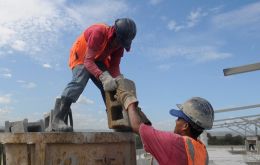
The Argentine stock market is booming and on Thursday confirmed its seventh day running increase as investors are flocking encouraged by an imminent accord between the president Mauricio Macri administration and the IMF for a new loan package including reforms and a balanced budget in the next 18/24 months.
-
Thursday, September 20th 2018 - 06:50 UTC
Argentina's economy contracts 4.2% in second quarter: severe drought blamed
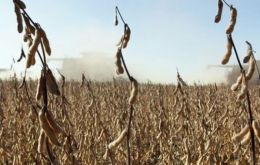
Argentina's economy contracted sharply in the second quarter after a severe drought roiled agricultural production and as the country works with the International Monetary Fund to stem spiraling inflation and control government finances.
-
Wednesday, September 19th 2018 - 09:05 UTC
Argentine Peso slid on Tuesday but the Merval stock market climbed a strong 3%
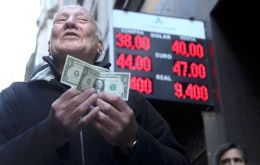
Argentina’s central bank sold US$ 261 million in reserves on Tuesday, the monetary authority said in a statement announcing its latest intervention in the foreign exchange market aimed at easing the fall of the local currency.
-
Tuesday, September 18th 2018 - 06:56 UTC
Argentine Peso recovers on an IMF support message and budget presentation to Congress
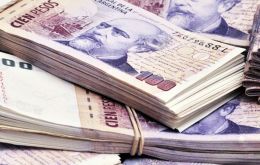
Argentina's battered Peso currency inched higher and the risk of its bonds defaulting declined after the government unveiled its budget plan and the IMF said “important progress” had been made on revamping the country's standby loan agreement.
-
Monday, September 17th 2018 - 08:12 UTC
International support for Argentina's general strike against IMF austerity measures
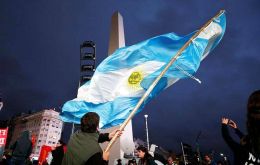
The International Trade Union Conference, ITUC’s affiliates in Argentina, CGT, CTA-A and CTA-T have announced a general strike for 24-25 September in opposition to expected sweeping austerity measures being developed by the government and the International Monetary Fund.
-
Friday, September 14th 2018 - 09:28 UTC
Argentine currency drops to a new record low of 39.90 pesos to the US dollar

Argentina's peso currency fell 3.51% on Thursday to close at a new record low of 39.9 per U.S. dollar, as market confidence ebbs away despite President Mauricio Macri's efforts to reassure investors. Dollar demand had risen on Thursday due to high liquidity sparked by an auction of treasury notes, traders said.
-
Friday, September 14th 2018 - 09:18 UTC
Argentine inflation in August rose 3.9%, and 34.4% in twelve months

Argentina says consumer prices rose 3.9% in August, the highest rate so far this year. That brings the 12-month nationwide inflation rate to 34.4%, one of the world's highest.
-
Thursday, September 13th 2018 - 10:39 UTC
IMF team in Buenos Aires for talks on the standby loan package
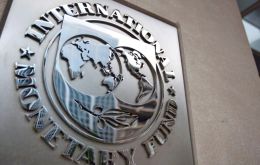
Officials from the International Monetary Fund are in Argentina as part of talks to strengthen and accelerate a crisis loan package, the global lender said Wednesday. The IMF and Buenos Aires agreed in June on a three-year, US$50 billion rescue lending programme but Argentina has since asked for a more rapid disbursement.
